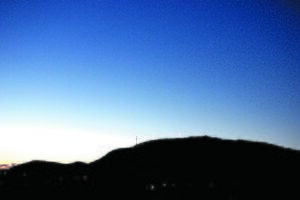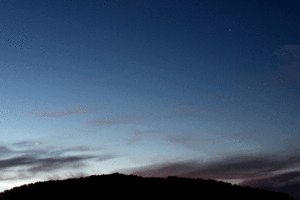A2.GU2.ZI.GA: Difference between revisions
From All Skies Encyclopaedia
A2.GU2.ZI.GA
DavidHilder (talk | contribs) (Created page with "(summary) ==Dictionary== ===Kurtik with Hilder, Hoffmann, Horowitz, Kim=== {| class="wikitable" |+ !Sources !Identifications |- |Var. readings: A<sub>2</sub>.GU<sub>2</sub>.ZIG<sub>3</sub>.GA; = šēru "(star) of the morning"; epithet of the goddess Inanna/Ishtar as the morning star [AHw 1219a; CAD Š/2 312f., 331f.] I. Sources. Lexical texts. Series DC XXII: mul a<sub>2</sub>.gu<sub>2</sub>.zi.ga = min(kab-kab) še-re-ti [MSL XI 31, Section 11, A col. v 9]; mul a<sub>...") |
DavidHilder (talk | contribs) No edit summary |
||
| (34 intermediate revisions by 3 users not shown) | |||
| Line 1: | Line 1: | ||
{{DISPLAYTITLE:A<sub>2</sub>.GU<sub>2</sub>.ZI.GA 𒀉𒄘𒍣𒂵}} |
|||
(summary) |
|||
[[File:Pleiades and Venus in blue dawn 2020.jpg|alt=photograph of Venus in dawn|thumb|Venus just above the mountain in dawn. ]] |
|||
MUL A<sub>2</sub>.GU<sub>2</sub>.ZI.GA (𒀉𒄘𒍣𒂵) = ''kakkab še-re-e-tu'', 'star of the morning,' is a Mesopotamian term for an asterism rising at dawn, but not necessarily Venus. |
|||
__FORCETOC__ |
|||
==Concordance, Etymology, History<ref>[[Mesopotamian (All Terms)|Planetarium Babylonicum 2.0]], All Skies Encyclopaedia.</ref>== |
|||
[[File:Jupiter-mars-plejaden 2024-07-08 IMG 2438 engl.gif|alt=photograph with labels|thumb|Jupiter, Mars, and Pleiades in dawn. Photograph on July 8 2024 03:57 by Susanne M Hoffmann, animated GIF displays labels (English)]]'''Var. readings:''' |
|||
* A<sub>2</sub>.GU<sub>2</sub>.ZIG<sub>3</sub>.GA |
|||
*= ''šēru'' (Akkadian) |
|||
* "(star) of the morning" |
|||
*Most often Venus (AHw<ref>''Soden von W''. Akkadisches Handwörterbuch. Wiesbaden, 1985.</ref> 1219a; CAD<ref>''The Assyrian Dictionary of the Oriental Institute of the University of Chicago.'' Chicago - Glückstadt, 1956</ref> Š/2 312f., 331f.), in this case epithet of the goddess Inanna/Ishtar as the morning star |
|||
*But also possible for other celestial objects, e.g. Mercury and Jupiter |
|||
==Dictionary== |
|||
===Kurtik with Hilder, Hoffmann, Horowitz, Kim=== |
|||
{| class="wikitable" |
{| class="wikitable" |
||
|+ |
|+ |
||
!Sources |
!Sources |
||
!Identifications |
!Identifications |
||
|- |
|- |
||
| ⚫ | |||
|Var. readings: A<sub>2</sub>.GU<sub>2</sub>.ZIG<sub>3</sub>.GA; = šēru "(star) of the morning"; epithet of the goddess Inanna/Ishtar as the morning star [AHw 1219a; CAD Š/2 312f., 331f.] |
|||
'''Lexical texts.''' |
|||
I. Sources. |
|||
*Urra 22: 327’: <sup>mul</sup>''a-gu-zi-ga'' = MIN (''kakkab'') ''še-re-e-tu'' ('''''Bloch-Horowitz ???) But check the CAD AHw entries for other attestations to put in below??''''' |
|||
Lexical texts. Series DC XXII: mul a<sub>2</sub>.gu<sub>2</sub>.zi.ga = min(kab-kab) še-re-ti [MSL XI 31, Section 11, A col. v 9]; mul a<sub>2</sub><sup>!</sup>.g[u<sub>2</sub>].zi.g[a] = min(kak-ka-bi) še-re-e-ti [SpTU III, 114 A col. v 67]. See also: mul a<sub>2</sub>-gu<sub>2</sub>-zi-ga u<sub>4</sub>-sa<sub>9</sub>-dagal-la-ke<sub>4</sub> "The morning star, (shining even) at noon" ("Ludingirra's epistle to his mother") [Civil 1964 2:23; ETCSL, 5.5.1:23]. |
|||
*<s>Series DC XXII: <sup>mul</sup>a<sub>2</sub>.gu<sub>2</sub>.zi.ga = min(''kab-kab'') ''še-re-ti'' [MSL XI<ref>''Materials for the Sumerian Lexicon''. Vol. XI. The Series HAR-ra = ''hubullu.'' Tablets XX-XXIV. Ed. by E.Reiner with the coll. of M.Civil. Roma, 1974.</ref> 31, Section 11, A col. v 9]; <sup>mul</sup>a<sub>2</sub><sup>!</sup>.g[u<sub>2</sub>].zi.g[a] = min(''kak-ka-bi'') ''še-re-e-ti'' [SpTU<ref>''Špätbabylonische Texte aus Uruk.'' Teil III / Bearb. von Weiher E. von. Berlin, 1988.</ref> III, 114 A col. v 67].</s> |
|||
| |
| |
||
| |
|} |
||
See also: <sup>mul</sup>''a''<sub>2</sub>-''gu''<sub>2</sub>-''zi-ga u''<sub>4</sub>-''sa''<sub>9</sub>-''dagal-la-ke''<sub>4</sub> "The morning star, (shining even) at noon" ("Ludingirra's epistle to his mother") [Civil 1964<ref>Civil M. The “Message of Lú-dingir-ra to His Mother” and a Group of Akkado-Hittite “Proverbs” // JNES. 1964. V. 23. P. 1-11.</ref> 2:23; ETCSL<ref>''Black J.A., Cunningham G., Fluckiger-Hawker E., Robson'' ''E., and Zólyomi G. The Electronic Text Corpus of Sumerian Literature'' (<nowiki>http://www-etcsl.orient.ox.ac.uk/</nowiki>), Oxford 1998-.</ref>, 5.5.1:23]. |
|||
| ⚫ | |||
| |
|||
|}Most often Venus. (A2.GU2.ZIG3.GA; šēru (without MUL) but sometimes deified: AHw 1219a; CAD Š/2 312f., 331f.] |
|||
Lexical texts: Urra 22: 327’: mula-gu-zi-ga = MIN se-re-e-tu |
|||
Literature: mul a2-gu2-zi-ga u4-sa9-dagal-la-ke4 "The morning star, (shining even) at noon" ("Ludingirra's epistle to his mother") [Civil 1964 2:23; ETCSL, 5.5.1:23]. |
|||
==Historical Dictionaries== |
==Historical Dictionaries== |
||
{| class="wikitable" |
{| class="wikitable" |
||
|+ |
|+ |
||
!Kurtik (2022) |
! scope="col" style="width: 60%;" |Kurtik (2022, a05) |
||
!Gössmann (1950) |
! scope="col" style="width: 40%;" |Gössmann (1950) |
||
|- |
|- |
||
|вар. чтения: A<sub>2</sub>.GU<sub>2</sub>.ZIG<sub>3</sub>.GA; = šēru "(звезда) утра"; эпитет богини Инанны/Иштар как утренней звезды [AHw 1219a; CAD Š/2 312f., 331f.]. |
|вар. чтения: A<sub>2</sub>.GU<sub>2</sub>.ZIG<sub>3</sub>.GA; = šēru "(звезда) утра"; эпитет богини Инанны/Иштар как утренней звезды [AHw 1219a; CAD Š/2 312f., 331f.]. |
||
I. Источники. |
I. Источники. |
||
Лексич. тексты. Серия DC XXII: mul |
Лексич. тексты. Серия DC XXII: <sup>mul</sup>a<sub>2</sub>.gu<sub>2</sub>.zi.ga = min(kab-kab) še-re-ti [MSL XI 31, Section 11, A col. v 9]; <sup>mul</sup>a<sub>2</sub><sup>!</sup>.g[u<sub>2</sub>].zi.g[a] = min(kak-ka-bi) še-re-e-ti [SpTU III, 114 А col. v 67]. См также: <sup>mul</sup>a<sub>2</sub>-gu<sub>2</sub>-zi-ga u<sub>4</sub>-sa<sub>9</sub>-dagal-la-ke<sub>4</sub> "Утренняя звезда, (сияющая даже) в полдень" ("Послание Лудингирры к своей матери") [Civil 1964 2:23; ETCSL, 5.5.1:23]. |
||
| |
|||
|- |
|||
| |
|||
| |
| |
||
|} |
|} |
||
[[Category:4workWayne]] |
|||
[[Category:Mesopotamian]] |
|||
[[Category:West Asian]] |
|||
[[Category:Eurasia]] |
|||
[[Category:Cuneiform]] |
|||
[[Category:Phenomenon]] |
|||
[[Category:Solar System]] |
|||
[[Category:Planet]] |
|||
[[Category:Venus]] |
|||
[[Category:Mercury]] |
|||
[[Category:Jupiter]] |
|||
Latest revision as of 09:30, 16 December 2025
MUL A2.GU2.ZI.GA (𒀉𒄘𒍣𒂵) = kakkab še-re-e-tu, 'star of the morning,' is a Mesopotamian term for an asterism rising at dawn, but not necessarily Venus.
Concordance, Etymology, History[1]
Var. readings:
- A2.GU2.ZIG3.GA
- = šēru (Akkadian)
- "(star) of the morning"
- Most often Venus (AHw[2] 1219a; CAD[3] Š/2 312f., 331f.), in this case epithet of the goddess Inanna/Ishtar as the morning star
- But also possible for other celestial objects, e.g. Mercury and Jupiter
| Sources | Identifications |
|---|---|
|
Lexical texts.
|
See also: mula2-gu2-zi-ga u4-sa9-dagal-la-ke4 "The morning star, (shining even) at noon" ("Ludingirra's epistle to his mother") [Civil 1964[6] 2:23; ETCSL[7], 5.5.1:23].
Historical Dictionaries
| Kurtik (2022, a05) | Gössmann (1950) |
|---|---|
| вар. чтения: A2.GU2.ZIG3.GA; = šēru "(звезда) утра"; эпитет богини Инанны/Иштар как утренней звезды [AHw 1219a; CAD Š/2 312f., 331f.].
I. Источники. Лексич. тексты. Серия DC XXII: mula2.gu2.zi.ga = min(kab-kab) še-re-ti [MSL XI 31, Section 11, A col. v 9]; mula2!.g[u2].zi.g[a] = min(kak-ka-bi) še-re-e-ti [SpTU III, 114 А col. v 67]. См также: mula2-gu2-zi-ga u4-sa9-dagal-la-ke4 "Утренняя звезда, (сияющая даже) в полдень" ("Послание Лудингирры к своей матери") [Civil 1964 2:23; ETCSL, 5.5.1:23]. |
- ↑ Planetarium Babylonicum 2.0, All Skies Encyclopaedia.
- ↑ Soden von W. Akkadisches Handwörterbuch. Wiesbaden, 1985.
- ↑ The Assyrian Dictionary of the Oriental Institute of the University of Chicago. Chicago - Glückstadt, 1956
- ↑ Materials for the Sumerian Lexicon. Vol. XI. The Series HAR-ra = hubullu. Tablets XX-XXIV. Ed. by E.Reiner with the coll. of M.Civil. Roma, 1974.
- ↑ Špätbabylonische Texte aus Uruk. Teil III / Bearb. von Weiher E. von. Berlin, 1988.
- ↑ Civil M. The “Message of Lú-dingir-ra to His Mother” and a Group of Akkado-Hittite “Proverbs” // JNES. 1964. V. 23. P. 1-11.
- ↑ Black J.A., Cunningham G., Fluckiger-Hawker E., Robson E., and Zólyomi G. The Electronic Text Corpus of Sumerian Literature (http://www-etcsl.orient.ox.ac.uk/), Oxford 1998-.






